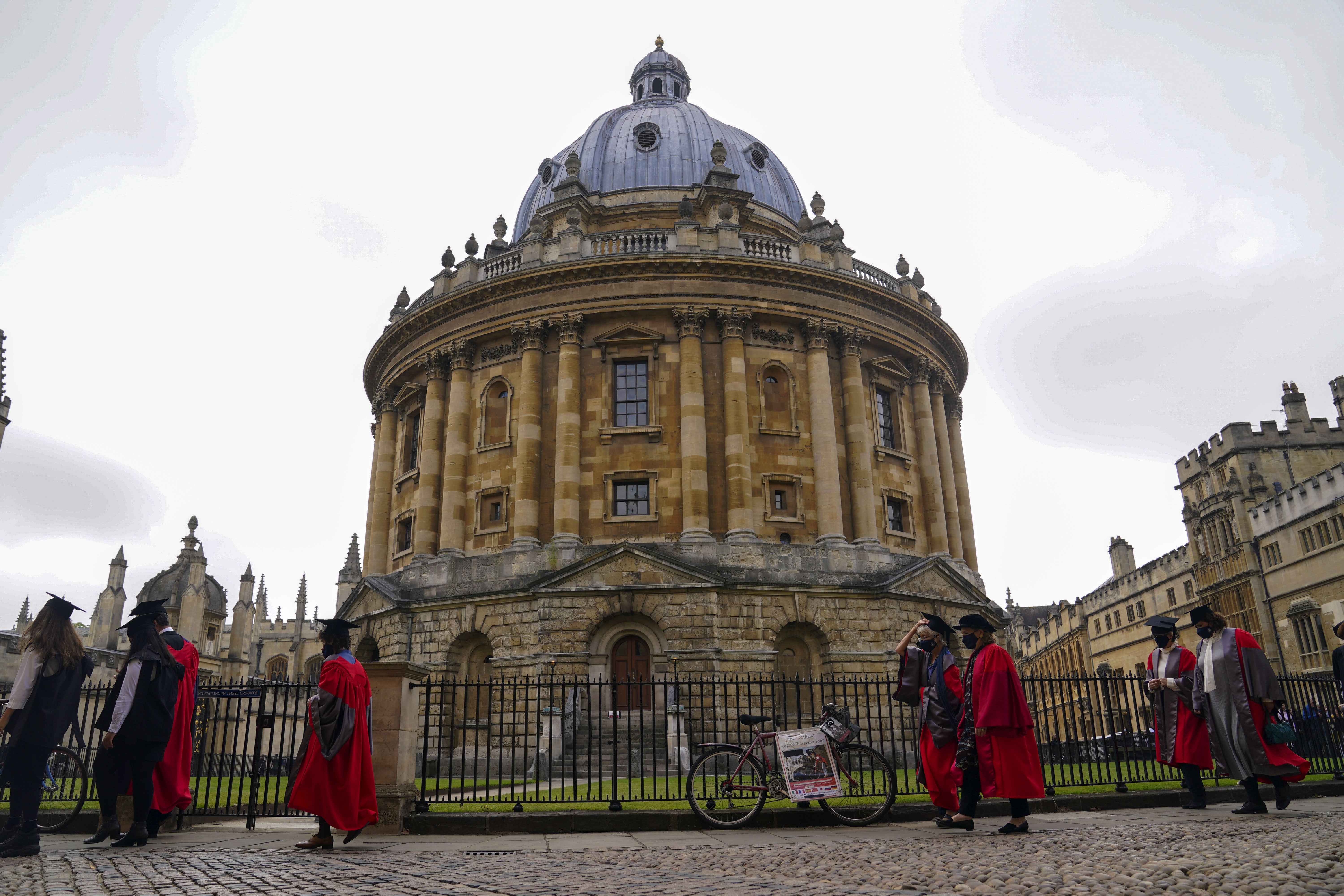Brexit blamed for fall in numbers of EU students at Oxford
A university report said the number has dropped from an average of more than 260 for the past four years to 128.

Your support helps us to tell the story
From reproductive rights to climate change to Big Tech, The Independent is on the ground when the story is developing. Whether it's investigating the financials of Elon Musk's pro-Trump PAC or producing our latest documentary, 'The A Word', which shines a light on the American women fighting for reproductive rights, we know how important it is to parse out the facts from the messaging.
At such a critical moment in US history, we need reporters on the ground. Your donation allows us to keep sending journalists to speak to both sides of the story.
The Independent is trusted by Americans across the entire political spectrum. And unlike many other quality news outlets, we choose not to lock Americans out of our reporting and analysis with paywalls. We believe quality journalism should be available to everyone, paid for by those who can afford it.
Your support makes all the difference.Brexit has caused a “steep decline” in the number of students from the European Union going to study at Oxford University, the annual admissions report has shown.
The university’s report found the number admitted from the EU has halved, from 8% of overall students to 4%, and from an average of more 260 for the past four years to 128 this year.
The proportion of British students increased slightly to 82%, compared with a Russell Group average of 73%.
Vice-chancellor Professor Louise Richardson said the “decline was expected as a result of the changing fee regime occasioned by Brexit, but it is stark”.
Between 2019 and 2021, China was the country with the highest number of overseas applicants to Oxford, with 459. There were 8,231 from the UK.
The admissions data showed the proportion of state school pupils gaining a place had risen from 58% in 2017 to 68% in 2021.
The rise was particularly marked during the pandemic years, with 62% of state school applicants gaining places in 2019, compared with 69% in 2020 and 68% in 2021.
The report also noted that state students “apply disproportionately for the most oversubscribed subjects”, with 38% of applications during 2019-21 for five of the most oversubscribed subjects – economics, medicine, law, mathematics and politics, philosophy & economics – compared with 31% of private school applicants.
I am deeply grateful to the generous donor who shares our belief in the power of education and our commitment to identifying and nurturing talent
It said around a fifth – 18% – of private school applications were for five of the least oversubscribed subjects – including classics, modern languages and music – compared with 12% of state school applications.
Between 2017 and 2021, the proportion of students identifying as black and minority ethnic (BME) rose from 18% to 25%, while the proportion from disadvantaged areas rose from 11% to 17%.
There were significant differences in how many students got into Oxford from different areas of the UK, with 27% from Greater London during 2019-21, compared with 2% in the North East.
Oxford’s report said the differences reflected “population size, achievement in school and application numbers”.
On Wednesday, Oxford launched a new access programme, the Astrophoria Foundation Year.
Funded by an anonymous donor, it involves a one-year course aimed at developing students’ academic skills, self-belief and confidence, and is aimed at state school pupils who have “significant academic potential, but who have experienced severe personal disadvantage or a disrupted education which has damaged their ability to apply for an Oxford undergraduate place”.
There will be 50 places each year and living expenses, accommodation and tuition will be fully funded. The first cohort will be admitted in October 2023.
Oxford’s report showed that most students admitted in 2021 (68%) achieved three A*s at A-level but students will be able to access the foundation year with grades from BBB to AAB.
Prof Richardson said: “We are delighted to announce the launch of the Astrophoria Foundation Year, which will have a transformative impact on the lives of the smartest students who have experienced grave disadvantage.
“The programme will enable us to accelerate the progress we have made, as demonstrated in our annual admissions report, in broadening the socio-economic backgrounds of our undergraduate students.
“I am deeply grateful to the generous donor who shares our belief in the power of education and our commitment to identifying and nurturing talent.”